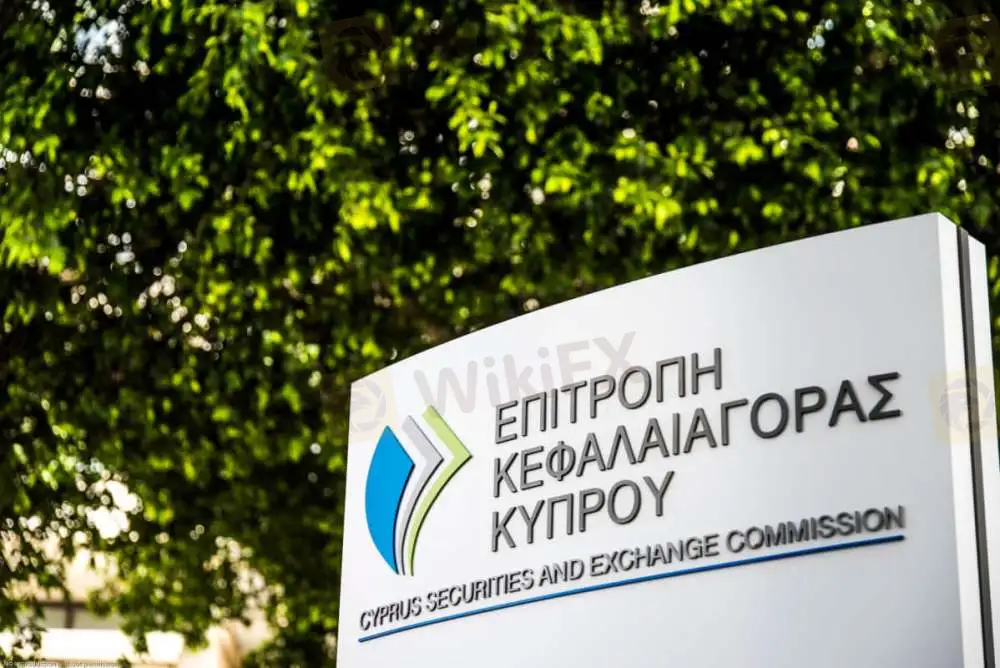简体中文
繁體中文
English
Pусский
日本語
ภาษาไทย
Tiếng Việt
Bahasa Indonesia
Español
हिन्दी
Filippiiniläinen
Français
Deutsch
Português
Türkçe
한국어
العربية
WIKIFX REPORT: CYSEC TO COMPENSATE CLIENTS OF DUALIX & AGM MARKETS
Abstract:The Cyprus Securities and Exchange Commission today announced the initiation of the process of compensating the clients of Maxigrid Limited (trading as Dualix & AGM Markets), which saw its license lapsed in February.

The process involves the CySEC inviting clients to the claims portal for them to enter the necessary details and state their claims.
The Cypriot watchdog has wholly withdrawn the Cyprus Investment Firm (CIF) of Maxigrid, and the company was forced out of regulated business.
“As per paragraph 18(1)(a) of Directive DI87-07 of 2019 for the Operation of the Investors Compensation Fund (R.A.D. 76/2019), CySEC has determined that the Company (member of the I.C.F.) for the time being, for reasons directly related to its financial circumstances, is unable to meet its obligations arising out of investors claims and has no early prospect of being able to do so,” the circular further states.
What‘s next?
Fortunately, Maxigrid is a member of the Investor Compensation Fund (ICF), which serves to protect the claims of covered clients and provide them with compensation in case a member couldn’t meet its financial obligations.
According to the CySECs announcement, the regulator initiates the compensation payment procedure after it has revoked the Maxigrid authorization. The company, however, is not expected to pay back its obligations in the near future for reasons directly related to its financial circumstances.
The next step, if any, will see the ICF inviting covered clients to make their claims against the company, designating the procedure for filing compensation applications and the deadline for their submission. Next, the fund publishes the details in at least two local newspapers, including the address at which investors may be informed about the progress of their applications.
The amount of the compensation payable to each client is calculated in accordance with the contractual terms governing his relationship with the faltering broker, but in general, the maximum amount doesnt exceed €20.000.
Earlier in 2019, the CySEC has changed maximum compensation for valid claims to be either 90 percent of the cumulative covered claims or €20.000, whichever is lower. Therefore coverage = Min (90 percent Χ claimed amount, €20.000). This means that an investor who holds €50.000 with a CIF, which runs into trouble and is unable to pay, will get €20.000 from the ICF. However, if the claim is for €10.000, the coverage will be only 90 percent or €9.000, not 100 percent, as previously calculated.
Disclaimer:
The views in this article only represent the author's personal views, and do not constitute investment advice on this platform. This platform does not guarantee the accuracy, completeness and timeliness of the information in the article, and will not be liable for any loss caused by the use of or reliance on the information in the article.
Read more

Axi Reveals Game-Changing Edge Score Tool to Elevate Traders
Axi launches the Edge Score Explainer, a tool providing traders with real-time insights, personalized metrics, and actionable data to enhance trading performance.

High Risk, High Returns: Is This True?
Leverage is one of the most talked-about tools in trading. It promises big returns but comes with huge risks. Traders often wonder if leverage is a blessing or a curse. There are arguments on both sides. Some traders believe it is a game-changer. Others think it can ruin your account. What is your take on this?

FCA Plans to Transform Financial Regulations in the UK
The Financial Conduct Authority (FCA) has revealed plans to reform its regulatory framework to support economic growth in the United Kingdom.

Is eToro Leaving London to Focus on a $5B U.S. IPO in 2025?
eToro plans a $5B U.S. IPO in 2025, shifting focus from London to the U.S. market. Discover details on eToro's valuation, SEC filing, and future in fintech.
WikiFX Broker
Latest News
IG Japan Extends US Stock CFD Trading Hours in 2025
ALERT! Warning against Livaxxen
Which Zodiac Sign Makes the Best Trader?
Plus500 Collaborates with Topstep, Prop firm
Robinhood Launches Crypto Trading Services in Spain
Archax Secures FCA Approval to Oversee Crypto Promotions in the UK
CLS Global Admits to Crypto Fraud
Philippine SEC Urges Caution Regarding Ecomamoni
Become Women Brand Ambassador of Yamarkets
Naira Falls Against Dollar as Nigeria Reshapes Economic Blueprint
Currency Calculator


